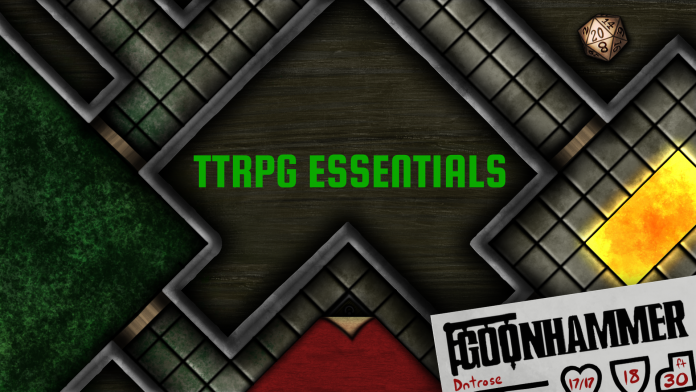Well, it sure has been a minute, hasn’t it? No, don’t look at the date of the previous article in this series, stay with me. In fact, take a seat! I’ve cleaned off more than enough cobwebs for you to be able to have a variety to pick betw- No. Not that one. That’s Reynauld’s seat, and if you sit there I’ll be hearing about it for days. Right, comfortable? Tired of this overtly chummy prologue? Great, me too.
Hello and welcome back to the fifth entry in a series of articles we’re calling “TTRPG Essentials”, each of which focuses on welcoming you into the robust hobby of tabletop roleplaying games. If you want to read the articles that preceded this one, you can find them here.
Last article we focused on DM/GM’s and some of the many tools available to them to facilitate the best possible play experience for their table. Today we’ll be looking to the other side of our asymmetrical play surface; The Players. As all those that proceeded it, this article is in no way intended to be exhaustive and is instead written with the intent of introducing you (the reader) to a vertical slice of the resources available to you within this hobby.
Let’s get to it.
Responsibilities
As described in our very first article,
A Player is everyone at the table that’s controlling an individual player character (PC), whether rolled up using the character creation rules, or pre-built. If we’re thinking in terms of BG3, any origin character is a PC. They have unique hopes, dreams, skills, and experiences, and the player expresses this through their choices within the game, and the way in which they interact with other characters. The PC’s stats, skills, abilities, and other qualities are all recorded upon what’s known as a character sheet.
Now something that must be expressed is that you will rarely be the only player at the table, and as such, share the narrative focus. The other players beside you are just as excited to explore the rich nuance of their characters, and the best way to ensure that this happens is by working together. When you’re a player, the best play experience isn’t simply a result of collaboration, but synergy. As is likely starting to read as recitation by this point, the key to achieving this synergistic gameplay experience is open and clear communication.
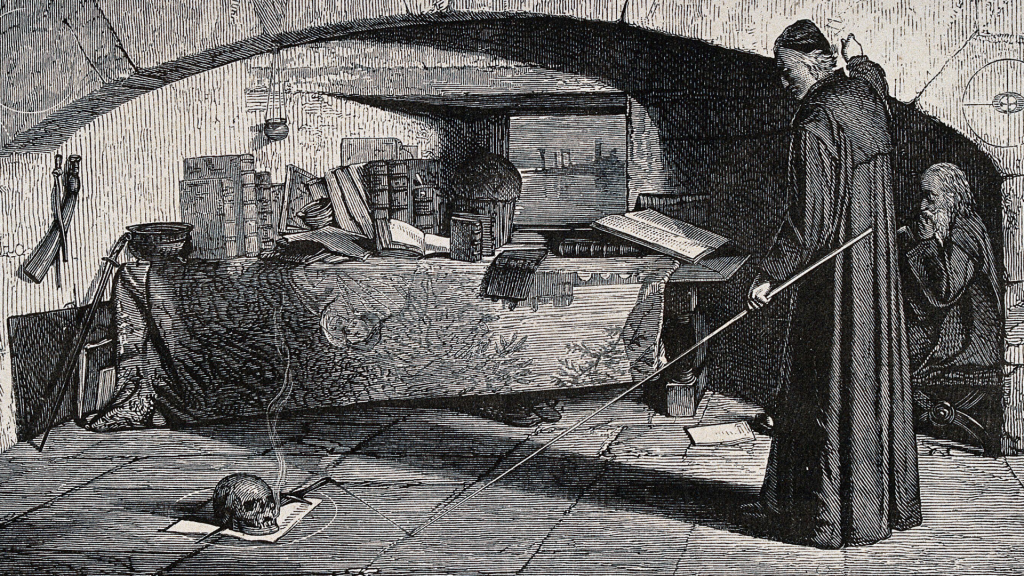
Communication
Open & clear communication is a skill, and as such, not everyone possesses the same experience with it. Any table, even one populated by long-time friends, is going to require time to adjust to this. The best way to facilitate a learning environment, and thereby a communicative one, is to ensure that everyone is being engaged in the process.
This can look like a player soliciting others for ideas, character to character dialogue, asking questions about the world or the system itself, requesting situational clarity, and anything that engages other players at the table or the DM in creative discussion. If you can maintain this level of open communication, you’ll facilitate the best possible environment for great gameplay and immersive storytelling.
What this doesn’t look like is anything that asserts or attempts to establish a social pecking order at your table, undermining commentary, side-conversations, or any question, suggestion, or argument offered in bad faith to anyone at the table. It’s important to remember that even the best intentions can lead to the worst examples of communication, so remember to consider the feelings and experience of others, and most ways out of an uncomfortable situation created by one of these mistakes starts with an apology.
Remember, the table is a shared space, and the best thing you can do to remember this is to treat everyone that shares it with you with empathy and understanding. If you find that too difficult, don’t be surprised if nobody wants to make space for you at their table.
Expectations
One of the first and best conversations for any player to have with their table at the beginning of a new campaign or one-shot, is one about their hopes and expectations. TTRPG’s can be so many things, from character-driven explorations, to expansive open-world hex-crawls, combat-grinder dungeon dives, collaborative world-builders (and enders), and everything in-between. In addition, while some systems are designed with only one gameplay loop in mind, others are open-ended enough to ensure that three tables might run them three different ways.
A great example of this is Dungeons & Dragons, a game that originated as a combat-grinding dungeon diver, but is now utilized by some to explore cinematic open-worlds and character-driven emotional narratives. No matter how many iterations it might go through, D&D’s legacy as a war-game is always going to ensure that combat-focused gameplay is a possibility, just as the recent cultural influence of Actual-Play will ensure that it is presented as the opposite. The problem is, this ensures that two players at a D&D table might sit on either side of these extremes, and as a result have opposing expectations of the shape of play.
The only way to know for certain, is (surprise) to talk about it like adults. If you want combat, tell your table. If you want to flirt with your friends through a found-family of queer disasters, tell your table. Hopes & Expectations are really just another consent tool, just on a more macro-scale (and yes, this means you can use the conversation about one to introduce the other).
Once it’s understood that your players might have opposing expectations, the table can make an attempt to find a healthy middle ground, the DM can adjust gameplay, and players can know if this game is going to be for them. It’s also possible that at this point the table might decide to switch systems, or a player might opt to exit the table as no proposed compromise feels adequate to meet their expectations, and there’s no shame in either possibility. Some systems just aren’t set up to facilitate certain gameplay, and some players just don’t mesh with each other. As long as you keep it respectful, you’re good.
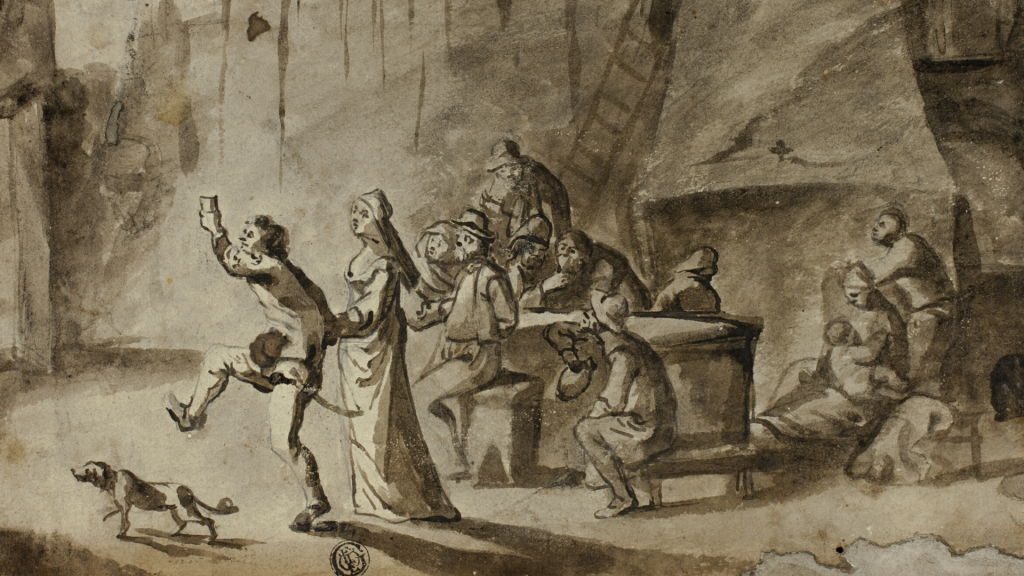
Community Toolbox
Unless your system is some brand-spanking new indie that you’re playtesting before release, it’s extremely rare that the ground you’re standing on hasn’t been trod by countless others before you. The great thing about this, is that some of those people before you decided to make tools for future generations, and you get to reap the benefits. All you have to do is locate them, and sometimes that’s as simple as seeking out the community for your system, whether that’s on Reddit, Discord, message boards, Twitter, Tumblr, Cohost, or Shadowed orb.
Examples range between simplified character sheets, quick reference guides, alternate character creation options, and whole new sub-systems to bolt on the side of your game. Nearly all of it is optional, but some of it might be exactly to your taste.
As always, these tools are made to be shared, so make certain that everybody at the table knows that they’re there. Also, be prepared to have a conversation about any additional rules or character creation options you might want to bring in.
Inhabiting Your Character
There’s a common misconception within some corners of the TTRPG hobby that the majority of world-building is done by the DM, and that players get to float through unencumbered by the expansive task of characterizing the world within which their characters live and breathe. Now this is unequivocally bullshit, but lets talk about why.
The character you create and portray within a table top roleplaying game starts out as numbers or percentiles, or filled in bubbles, or checked off lists. Yet, in order to truly experience inhabit them, or PLAY THE ROLE, they need to become more than that. That means you, the player, need to understand them. What goals drive them, what sweet victories have they been afforded, and what scouring losses have broken them? Who inspires them, cares for them, or just plain hates their guts? What small parcels of the world are known, claimed, or avoided by them?
All of these questions, if answered by you, flesh out your character beyond their stat sheet, and inform their relationships with the world around them. One of the easiest ways to do this…is the good ol’ fashioned 3×3.
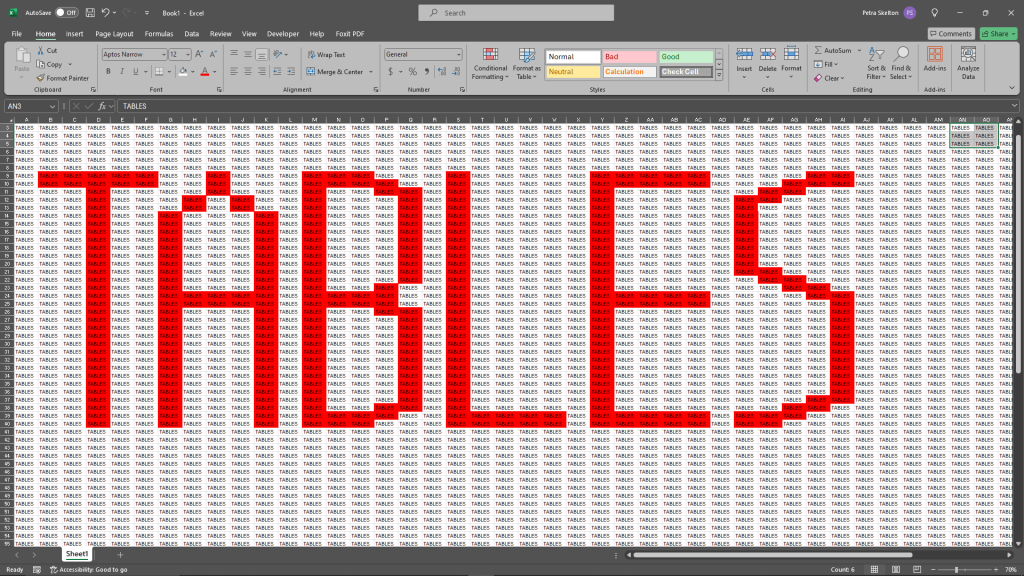
So a 3×3 doesn’t need to be a formal chart of any kind, despite what certain jokes I chose to place above this sentence might tell you. Really, it can just be a list of 9 things, broken up into 3 categories. The most popular arrangement of these categories is People, Places, and Things. Some other options for categories are listed below:
- Debts
- Deeds
- Losses
- Memories
- Monsters
- Rumors
- Scars
- Technology
- Wins
Regardless of which three categories you select, the idea is to provide three examples of each, specific to your character’s lived experience. Once you’ve done that, you can provide this list to your table, and everything found within has the potential to shape the world or craft shared history.
Session Zero
One of the single greatest tools that your TTRPG table has access to is the session zero. Not every table utilizes them, but they should. Why? Well, absolutely everything we’ve covered in this series thus far can be a part of session zero. System selection, character creation, system specific tools, communicating hopes & expectations, implementing consent tools, as well as scheduling and organization all fit the bill.
This session allows everyone some much needed breathing-room, allowing players to adapt their character concepts around their fellow players, DM’s to adapt their narratives to both player and character alike, and just give everyone a chance to get to know each other above the table.
Session Zero is your opportunity to feel out a table, and establish the healthy communication habits that your game will require. In addition, having a dedicated session with the specific intent of covering all these bases allows the table more breathing room in session one, thereby eliminating a bit of the inherent anxiety of something new.
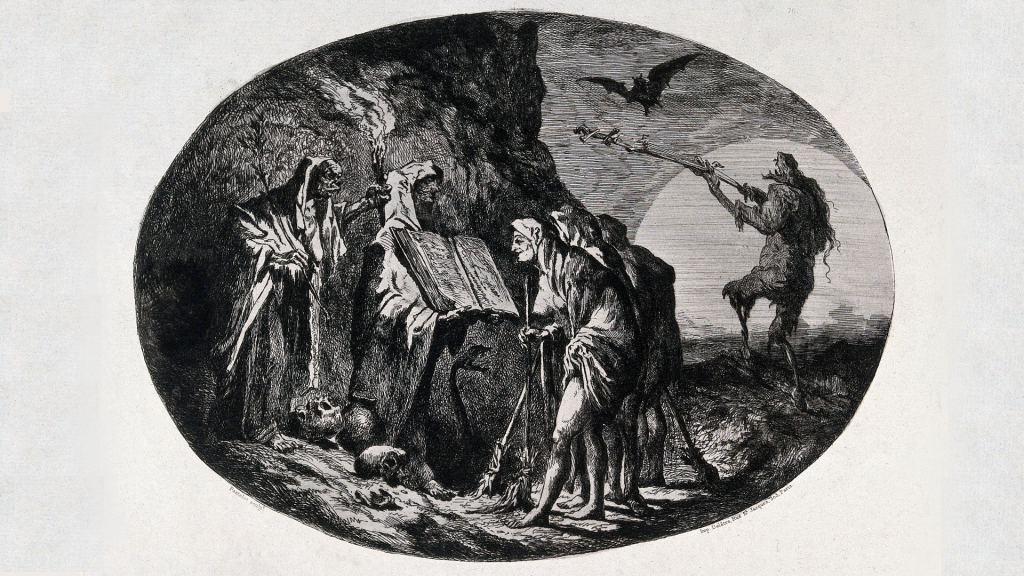
Tavern of the Mind
Everybody has a feel for one another, you’ve all established a communication style that seems like its going to work best for you, everyone knows who it is that they’ll be playing, and the general rules of the system they’ll be playing within the bounds of. Great, so how exactly did your character come to be standing beside the rest of the party? Some systems offer an immediate answer to this question, either in the character creation process (Such as bonds in Fabula Ultima, or friendships in Masks: A New Generation) or the extremely specific framework of the system itself (The Alien RPG, Never Going Home, Fist: Ultra Edition, Paranoia). Some systems however, rely on your table to determine the answer. This is the reason why “You all meet in a tavern” is a staple of fantasy roleplay, for example.
Regardless, having your own answer can be invaluable when it comes to informing both future interactions between characters at the table, ass well as their relationships with the world itself. Case in point, if two of you happened to meet each other whilst serving within the military of a feudal lord, you’ve created both conflict (Armies invariably meaning war is an inevitable part of the setting) as well as a whole-ass region and political power, and you both know how your characters might feel in regards to all of those new details. This means that when you run across an old battlefield, a character might have a reason to mourn, or when they run across a knight bearing certain heraldry, they might be quick to incite conflict. Regardless, you have further built up your world, deepened the relationships your characters have to it, and both can allow for an infinitely more immersive tabletop roleplaying experience.
Summary
Communication, investment, adaptation. Utilizing these tools in any method you choose to implement across your table, will hopefully lead to a truly unique and enjoyable experience. If it doesn’t, never be afraid to communicate that detail with your table. In order for the play experience of tabletop roleplaying games to truly flourish, everyone at the table needs to have a voice and that voice must be heard.
UP NEXT IN ESSENTIALS: Theatre of the Mind vs Maps & Minis!
Have any questions or feedback? Drop us a note in the comments below or email us at contact@goonhammer.com. Want articles like this linked in your inbox every Monday morning? Sign up for our newsletter. And don’t forget that you can support us on Patreon for backer rewards like early video content, Administratum access, an ad-free experience on our website and more.
